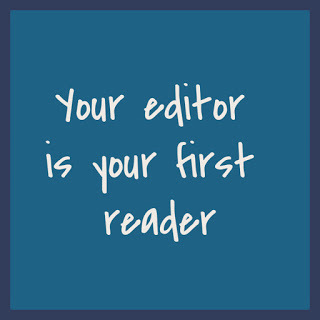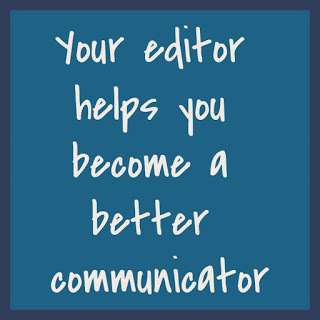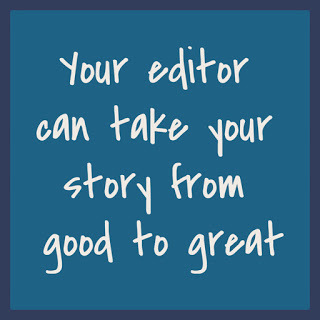The (Dreaded?) Revision Letter

I remember my first revision letter like it was yesterday. Page after page from my editor at Love Inspired that showed up in my inbox soon after I had received “THE CALL.”
How could there be so many things wrong with my manuscript? After all, on the phone she had sounded so positive. Had I misunderstood her?
The letter mentioned “lingering concerns,” and both characters needed a lot of work. Then came the line notes…bullet point after bullet point. Three pages of them.
I wasn’t devastated, but my balloon of glee definitely deflated a bit. I worried that I was never going to be able to sign that contract.
 My Debut Novel
My Debut NovelFast forward seven years….
Last week I received the revision letter for my most recent book, Softly Blows the Bugle, which is scheduled to be released Fall 2020. I had been looking forward to this letter from my editor at Revell and had been checking my email daily. I was anxious to get started on it!
What made the change?
After seven years, I had gained experience and grown as a writer.
As a newbie, I hadn't been sure I was in the right place. I felt like an imposter, and when I was found out…well…my career would be over before it started.
Do I see heads nodding? I think most new authors feel that way.
And being a newly published author isn’t like anything I had ever done before. The learning curve was a steep one! In that first year, I was trying to stuff so much information into my head that it literally hurt. But I just kept eating up whatever I could learn.

But back to revision letters.
Yes, the editor’s comments might hurt a little at first. But if you keep the following points in mind, you’ll soon learn to look forward to your own revision letters.

1) Remember that very few people have looked at your manuscript before you sent it to your editor.
If you’re part of a critique group or have a critique partner, you’ve already received their feedback. (I’ve learned that I don’t work well with critique partners. I’m the only one who has seen my story before I send it to my editor.) But no matter how many people have read your story before this point, your editor is the one who matters.
If you are publishing traditionally, she or he is the representative of your publishing house, and she reads your manuscript with her foot in both worlds – yours and the house’s. She has an eye for your story that no one else can have.
If you are publishing independently, hire your editor carefully – and by all means, hire an editor! You get what you pay for, and a quality editing job is worth every penny.
Either way, your editor is not only a different set of eyes, she is also a professional set of eyes. Her advice is valuable and should never be taken lightly. You might disagree with a point, and you can bring that up with her, but for the most part you should listen to her.

2) Understand that what is in your head doesn’t always translate onto the manuscript well.
When I’m writing a scene, I visualize it first. It’s as if I’m watching a movie of the action. As I write, I go back to that visualization frame by frame. What sounds do my characters hear? Where did she place her hand? What was the expression on his face?
But even though I know exactly what I’m seeing when I write down those words, sometimes it doesn’t translate to another person’s mind.
An aside here – isn’t that the magic of writing? Using your words to show your readers what your mind sees? It gives me goosebumps!
My editor is the one who will put a question mark in the margins, or say something like “what is going on here?” That’s when I know I haven’t communicated clearly.
Read that again: If my editor doesn’t understand what I’ve written, it isn’t her fault. It’s mine. I’m the communicator. If my words aren’t clear, then I need to rewrite them!

3) Your story is no longer your baby.
We all know how hard we work on our stories. We spend months thinking about them, researching ideas, developing characters, working out plot points, and writing, writing, writing.
But there comes the time when you must let them go. Once I hit “send,” my story now belongs to my publisher, and soon to the world.
It is no longer part of me. It is its own entity.
Much like our real babies. When they’re young, they are ours. But before long, we realize that they are no longer part of us – they grow into their own identities.
Think how tragic it is when a mother doesn’t allow her child to grow into an adult mentally or emotionally. Now translate that image to your story. What good will your story be to others if it is never published?
That’s what happens too many times. Some authors can’t make any changes to their stories once they write “The End.” They refuse to take advice from their critique partners or their editors. They refuse to let their stories go beyond what they think is the best possible version.
But when you write "The End," your story isn't finished yet. Keep in mind that you want your story to make its way into the world. You want your story to impact lives. You want your story to make a difference.
How can it do that if its still tied to your apron strings? How can it do that if you don’t allow your editor to suggest changes that will take your story from good to great?
We all respond to revision letters differently, but I hope you will see that letter as an affirmation of your talent (after all, no editor is going to waste time trying to fix an un-fixable story!) and a challenge to make your story the best it can be.
Let us know what you think about revision letters in the comments! Are they something you dread? Or do you welcome them? Or do you have a memory about your first revision letter that you can share?
One commenter will win a $10 gift card from Amazon!

Have a great Monday!
Published on November 17, 2019 21:00
No comments have been added yet.



